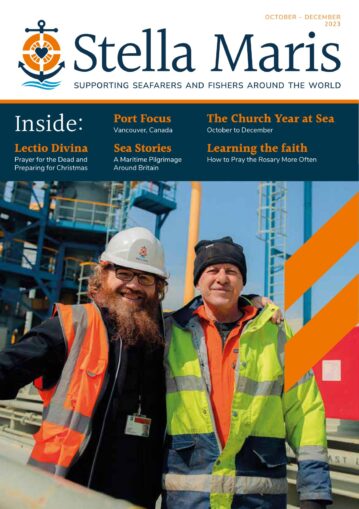
Stella Maris Magazine September – December 2023 English

Posted on September 27, 2023 by Nathaniel Xavier - Uncategorized

Posted on August 5, 2024 by Nathaniel Xavier - Uncategorized
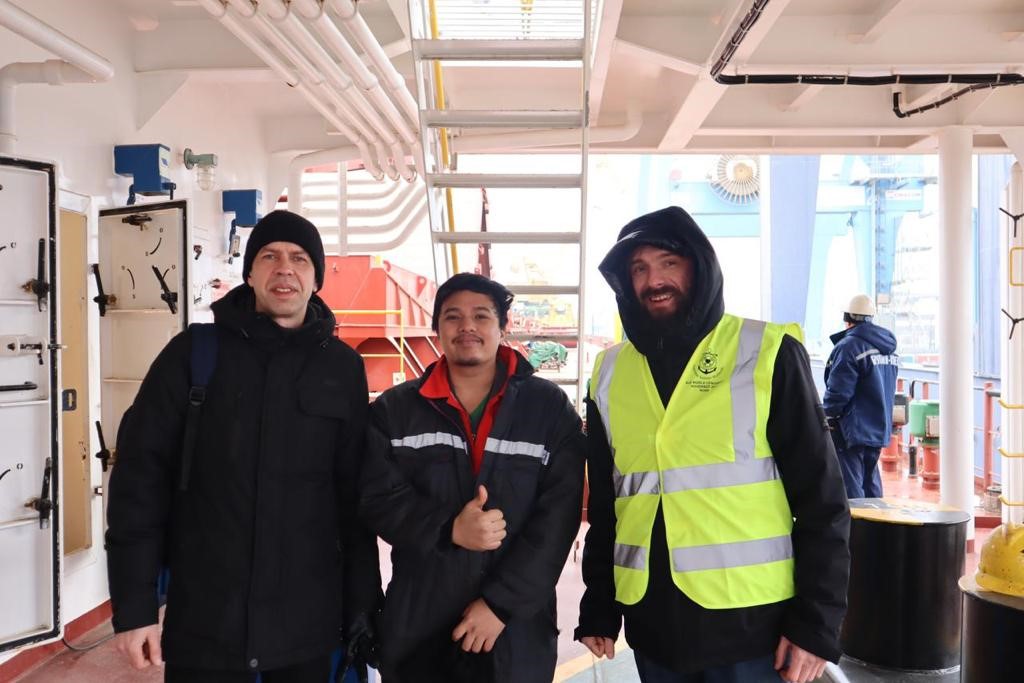
Leading maritime charity Stella Maris is committing funding “for as long as it takes” to provide urgent support to the thousands of seafarers in Ukraine and those regularly making the perilous journey to and from its Black Sea ports.
Seafarers working on vessels that have to navigate Russian threats through the Black Sea face numerous challenges, not least mental health issues associated with life-threatening risks.
And in Ukraine itself, seafarers have not been able to work for more than two years because of the country’s wartime rules, often creating financial hardships.

Stella Maris Odesa port chaplain, Fr Alexander Smerechynskyy, and Rostyslav
Inzhestoikov, assistant port chaplain, with a seafarer.
“There is a long-term need to support seafarers in Ukraine and we have committed to cover the core running costs of the Stella Maris team based in the Ukraine Black Sea Port of Odesa for as long as it takes,” said Tim Hill, the charity’s CEO.
“We are providing active support and sending a clear message of solidarity that the maritime sector has not forgotten Ukraine nor the issues seafarers are facing.”
Companies in the maritime industry are already stepping up to provide funding. UK P&I Club and Baltic Exchange Charitable Foundation have together provided sufficient funds to cover the Odesa team’s core running costs for 2024.
“We are very grateful to these two organisations, which have identified the urgent need for ongoing support after two and a half years of war,” said Ian Stokes, Head of Corporate Engagement and Partnerships at Stella Maris.
“We are the only maritime charity team on the ground in Odesa and the support of Baltic Exchange Charitable Foundation and UK P&I Club enables us to provide a wide range of support from trauma counselling and ship visits to grants towards medication, heating and other household costs.”
Patrick Ryan, Sustainability Director and Head of Club Secretariat for Thomas Miller P&I Ltd said, “The UK P&I Club recognises that war in Ukraine has increased the demands on Stella Maris to support seafarers operating in that region, whilst also harming the charity’s ability to raise funds locally. The Club is, therefore, delighted to be able to provide financial support to enable Stella Maris to keep up its vital work in Odesa.”
In addition to Ukrainian seafarers and their families, Stella Maris supports a large number of seafarers of different nationalities who come into Odesa and other ports.
“Often they cannot get off their ships because of the risk so we go on board and support them in any way we can,” said Jonathan Heard, Head of Major Gifts, Stella Maris.
“Often what they need is just the ability to talk to someone they can trust. But these seafarers are under a lot of pressure. They are working in a war zone. Some will witness missile and bomb explosions nearby; others will see armed drones. In these situations, we regularly see an uptick in the need for faith and spiritual support as well as trauma counselling, which we also provide.”
* Words by Polaris Media
Posted on June 27, 2024 by Nathaniel Xavier - Uncategorized
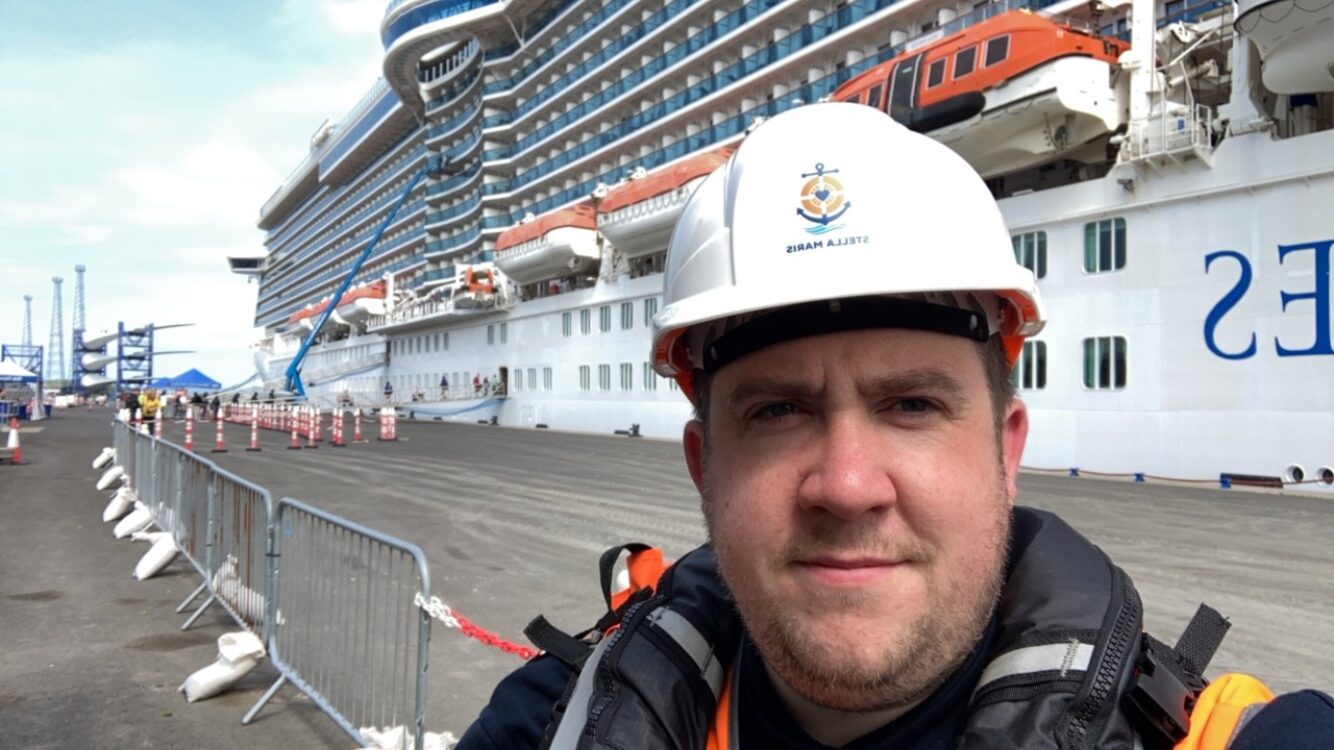
By Euan McArthur
Back in January, Chris Reynolds swapped teaching chemistry in secondary school for a front-line role with Stella Maris, the Catholic charity that supports seafarers and fishers both practically and spiritually. The charity had begun building a presence in Northern Ireland in 2019.
As Regional Port Chaplain, Chris visits seafarers in ports across Northern Ireland including Belfast, Ardglass Foyle Port and Warrenpoint and hopes to continue to build the capacity of Stella Maris to reach seafarers soon in areas such as Kilkeel and Larne.
Chris is thoroughly enjoying his new role. He said: “I’m really enjoying it. Being here in Belfast, the job is fantastic. It’s an absolute dream job for me.
“I’m out every day visiting ships, speaking to seafarers. As a former seafarer, I find that really engaging. I work very closely with the Mission to Seafarers, and they very kindly let me work out of their Seafarers Centre. It is a privilege to work alongside chaplains and ministers from other denominations doing what we can to provide practical support to the seafaring community.
“Deacon Joe O’Donnell has been very helpful. He’s our Senior Area Port Chaplain for Scotland and Northern Ireland. He has been right there behind me the whole way; in the first instance I was able to follow his example but now more and more I am discovering my own way and growing in confidence in the role.
“If I’ve any questions, I’ve been able to ask him. I don’t feel like I can’t ask. I’m approaching 250 ship visits since taking on the role in January. However, it’s more about the quality of the visit than the quantity.
“There will be a day when I visit six ships, which is great, but there will be a day when I visit two because I could be taking people to hospital appointments, into town or to the Seafarers Centre.”
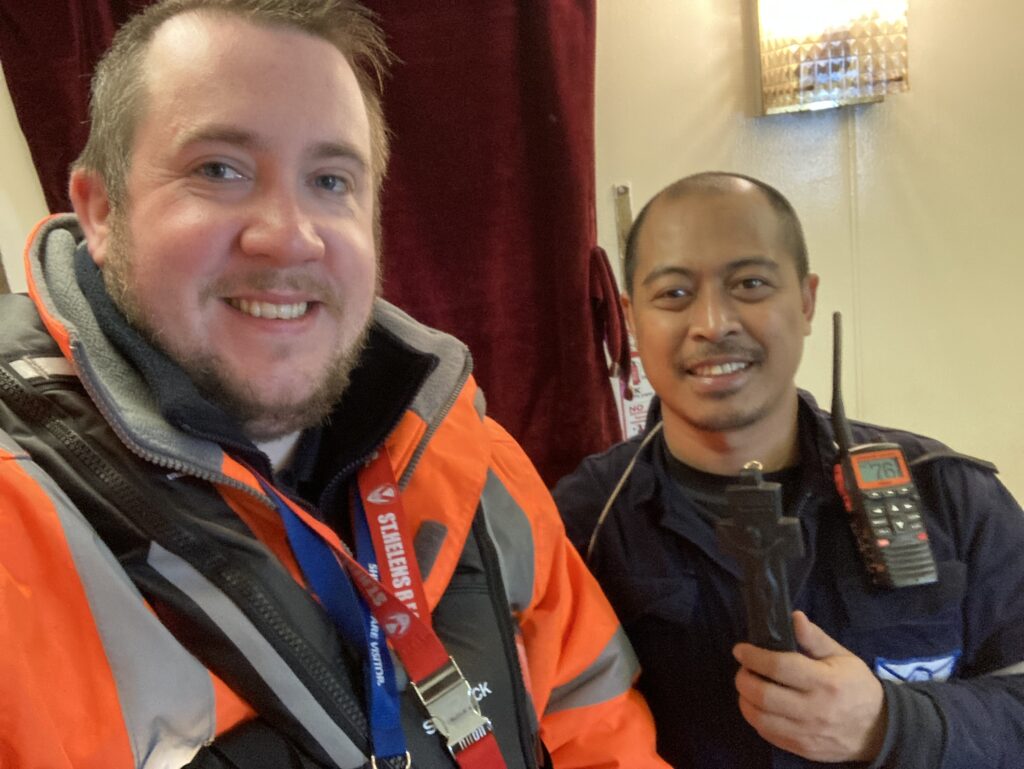
It has been an almost seamless transition for Stella Maris’ most recent recruit who is driven by the core values of the charity that was founded in Glasgow back in 1920.
In recent years, Deacon Joe O’Donnell had laid the foundations for Stella Maris in Northern Ireland with regular working visits there from Scotland. He had been ably supported throughout this process by Fr. Gerry McCloskey, who was appointed chaplain to Stella Maris by the Bishop. Fr. Gerry has played a significant role in supporting the fishing community, encouraging volunteers and saying Mass on board vessels, most recently on-board Dublin Eagle.
Chris is now building on those foundations and expanding the charity’s volunteer base in Northern Ireland. The charity’s growth of activities in Northern Ireland has been supported by the Merchant Navy Welfare Board.
And perhaps it shouldn’t come as a surprise that Chris has settled in so well, given his previous experience:
Chris explained: “I spent three years in formation with the Redemptorists in the London Province, which was a wonderful experience and I also spent time training to be a Deck Officer in the Merchant Navy.
“I went all over the world. I worked on Tall Ships in the Indian Ocean, sailing from Africa to India. I was on oil tankers in the Gulf of Texas, Venezuela and the Caribbean.
“I spent a brief period on board an offshore vessel, working out of Aberdeen and Stena ferries as well on the Cairnryan to Belfast routes. It was fantastic experience.
“I know the job of a seafarer can be fantastic. It’s one of the best jobs out there and I encourage any young people to consider the merchant and maritime industry as a career.
“But it’s also a very difficult job. It comes with lots of stresses and strains. I’ve done a lot of things in life as I tried to find where I belong, and I feel this role is a chance to bring together my experience at sea and my experience with the Redemptorists.
“It has been everything I thought it would be and I absolutely love coming to work.”
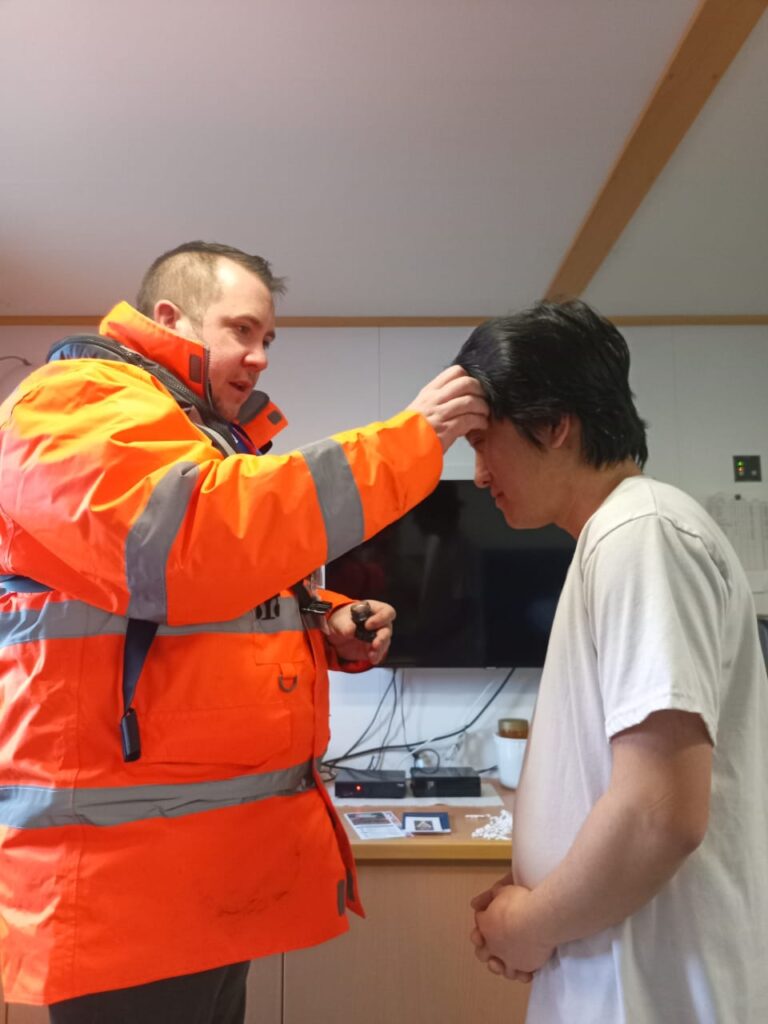
For Chris, it’s all about making a difference to the lives of seafarers and a recent encounter with a Ukrainian seafarer stands out.
He said: “When I was teaching it was the pastoral element that was the bit I liked really…the chance to make a difference in somebody’s life.
“I feel much more natural doing what I’m doing here. We make small, tangible differences every single day. The highlights so far have just been making that difference to seafarers and seeing their face when I say to them; yes, I can help you with that…no problem!
“They might tell you that they’d like to visit a museum or go to the supermarket. They’re always so surprised when you say to them that you’ll take them…it’s free, don’t worry about it…
“On one ship I met a Ukrainian seafarer who was finding it difficult to work alongside his colleagues from Russia given current tensions.
“I thought to myself what do I say to this guy? His family were in Odesa and that city had just been bombing.
“There was no point pretending I could change everything for this guy. But all I could do was give him the number and email address of Fr. Alexander (the Stella Maris port chaplain in Odesa). I said it would be worth contacting Fr Alex as he might be able to visit his family and make sure they’re Ok.
“You could tell the guy was quite moved. If all I did that day was give a man the chance to touch base with someone close to his family and a chance to know they were safe then I feel we made a small but valuable difference. Sometimes visits send you away appreciating what you have and more determined than ever to support seafarers. Sometimes you do come away thinking that has made a real difference.”
Chris’ impact hasn’t gone unnoticed, and Joe O’Donnell is full of praise for his efforts.
Joe said: “The ship-visiting in Northern Ireland since Chris started has escalated quite high. That’s because we now have a permanent presence in Belfast. It does make a big difference having Chris here.”
Posted on June 28, 2023 by Nathaniel Xavier - Uncategorized
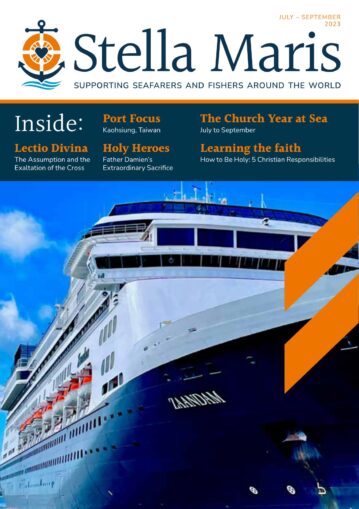
Posted on July 12, 2024 by Sarah Eustace - Uncategorized
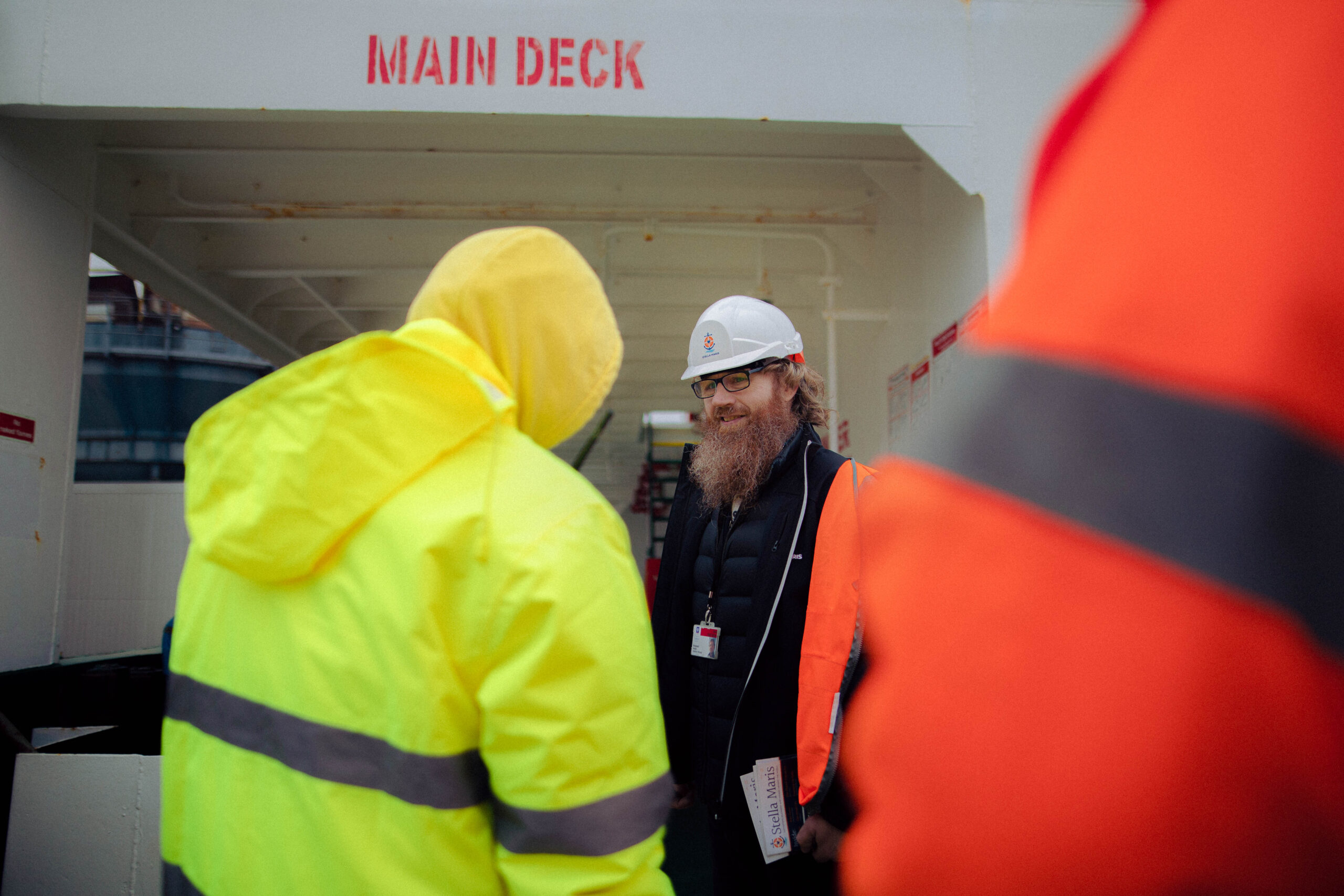
Global maritime charity Stella Maris is concerned over a sharp increase in seafarers affected by violence, as reported in the latest International Maritime Bureau (IMB) Piracy Report.
According to the IMB’s data, violent incidents against seafarers have risen by 75% in the first half of 2024 compared to the same period last year. The report documents 96 crew members being taken hostage or kidnapped and an increase in the use of guns and knives during attacks, highlighting the escalating threat to maritime workers.
In addition to the cases raised in the IMB report, Houthi rebels in the Red Sea have stepped up attacks on commercial vessels, with 65 reported incidents in the past six months
“These figures are deeply troubling.” said Tim Hill MBE, CEO of Stella Maris. “While there is a decrease in the overall number of piracy incidents, there is a worrying trend towards violent confrontation and increased threat to seafarers. When this is added to the continued violence in the Red Sea, it paints a grim picture of the realities faced by those working at sea.”
“The safety of seafarers is paramount,” Hill concluded. “This Sea Sunday, we strongly urge all governments to remember their fundamental duty to protect and support those who carry out their lawful business on the high seas. The international community must ensure the security of these essential workers who keep global trade flowing. Stella Maris will continue to provide much needed support to seafarers and their families in these challenging and turbulent times.”
Posted on July 2, 2024 by Nathaniel Xavier - Uncategorized
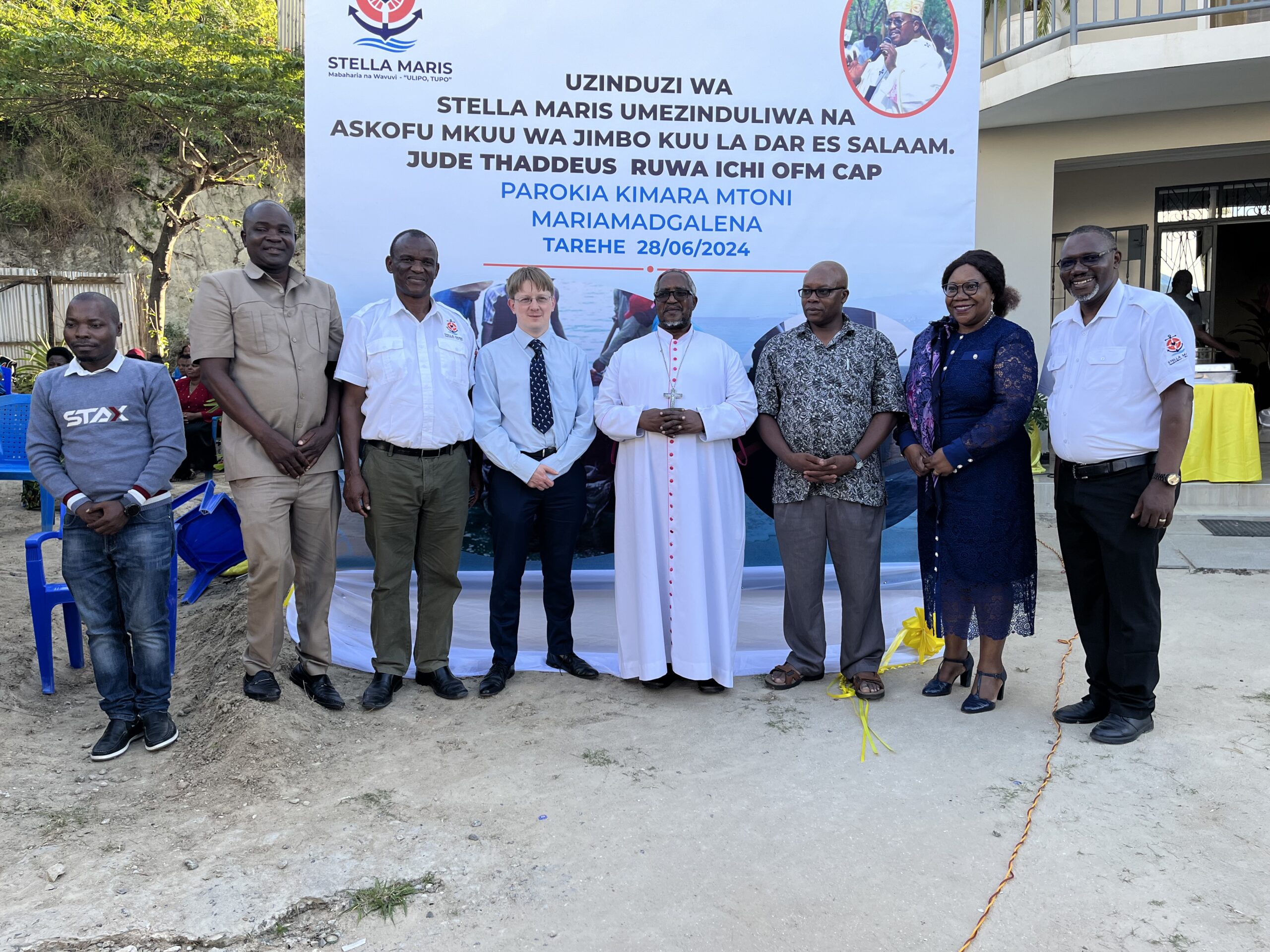
The world’s largest ship visiting charity Stella Maris is extending operations in East Africa with the opening of a new operation in the port city of Dar es Salaam, Tanzania, to support seafarers and fishing communities.
Stella Maris Tanzania was officially inaugurated on Friday June 28 at a ceremony attended by the Archbishop of Dar es Salaam and representatives from local seafaring and fishing communities as well as those from the Kenyan Port Authority in Mombasa.
The new team is being spearheaded by chaplain Father Patrick Musumbu, a Kenyan national who has lived and worked in Tanzania for 7 years and is leaving the parish he has built there to lead Stella Maris in Dar es Salaam. He will work with a team of volunteers as part of a network including neighbouring centres along the East and South African coast. Their work will also take them into local fishing communities and to the island of Zanzibar.
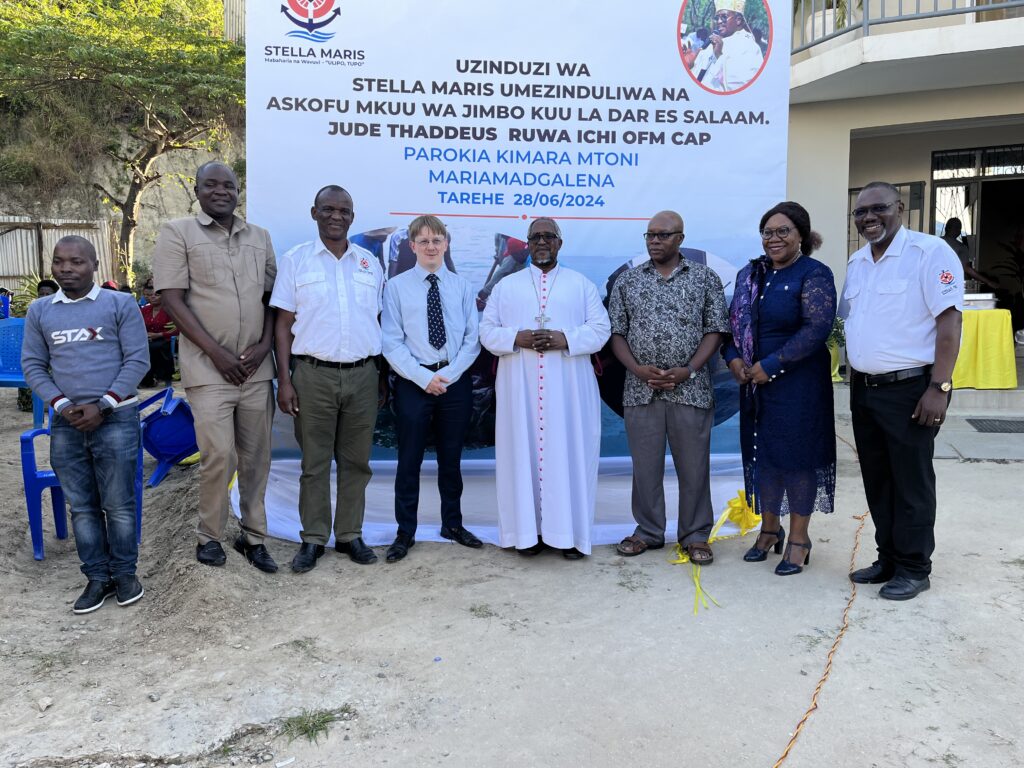
L-R: Mr Kirima (Chair of the Fish Sellers association, Dar es Salaam), Mr Alfonse Mocoma
(chair of the national fishers Association), (volunteer, unknown), Jon Heard (Stella Maris UK),
Archbishop Jude Ruwa-Ichi (Archbishop of Dar es Salaam), Rev.Fr. Vincent Nzabandora CMM,
Regional Superior of the Missionaries of Mariannhill, Mrs Rose Shiundu, Fr Patrick Musumba
(National Director, Stella Maris Tanzania)
Stella Maris’s Jonathan Heard, who is helping establish the team in Tanzania, said more seafarer support is vital on Africa’s East Coast with seafarers under increasing strain in the region.
“Our new mission opens at a time when seafarers need additional support with the rising numbers of vessels diverting here to avoid the Red Sea,” he said, “Not only does this mean more crews passing through the region; it also means that seafarers face being at sea significantly longer – sometimes months longer – than they anticipated.
“When seafarers spend very long periods of time at sea without adequate stops to rest and recuperate and without seeing anyone from outside their immediate crew, they are more likely to experience mental and physical health problems, and feelings of isolation and loneliness.
“We want to ensure that every seafarer visiting the African continent can get the help they need. That might be as simple as offering friendship and the opportunity to talk without judgement; providing free Wifi connectivity and the chance to make contact with family at home; arranging medical help for sick or injured seafarers; giving spiritual support regardless of faith or religion, or pastoral care for crews facing bereavement after a death on board.”
Fr Pat and his team will also work with local fishing communities along the Tanzania coast where a relatively high mortality rate of 1% is linked to unsafe practices as well as drug and alcohol misuse more common in poorer, rural areas. Their role will be to support these communities to fish more safely through education and practical support.
Stella Maris’s East and Southern Africa network is one of eight regional networks* set up and operated by the global charity to support seafarers and fishers around the world.
Jonathan Heard explains: “Our regional networks are coming together to share information and expertise and to advocate for seafarers and fishers in this part of Africa. Being part of a regional network means that we’re not waiting for a problem to arise in port. Instead, we’re communicating with our colleagues in neighbouring countries to understand the needs of a ship’s crew or an individual seafarer and preparing to offer the right type of support, in-person, when they arrive in our port.”
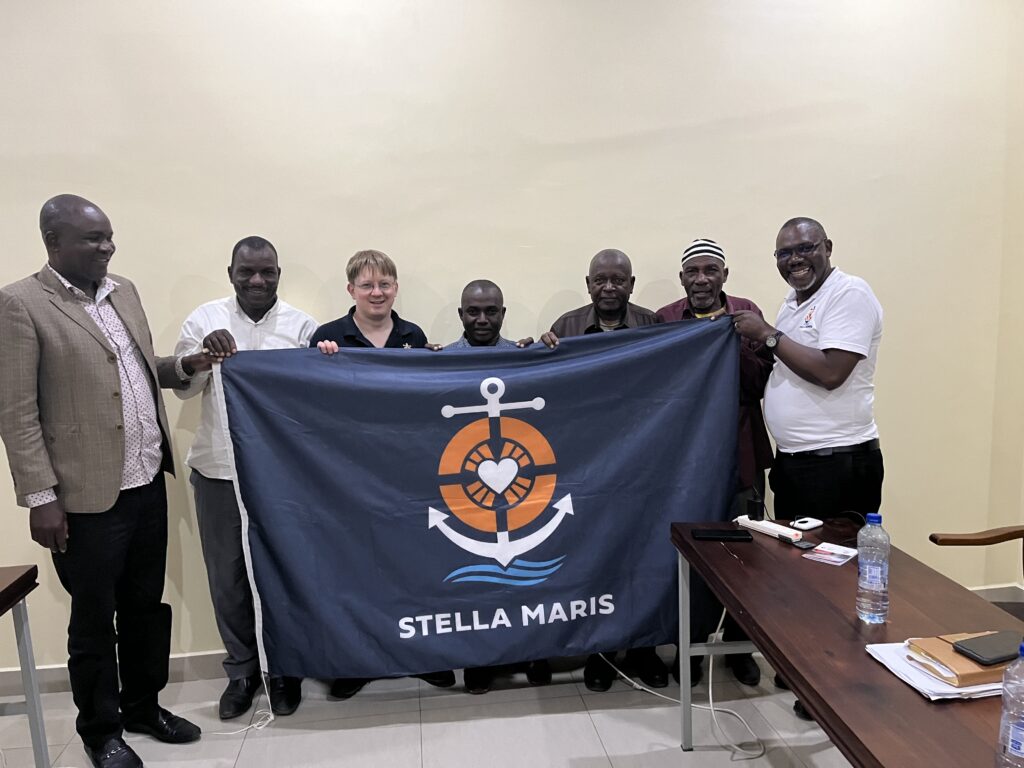
L-R: Mr Alfonse Mocoma (chair of the national fishers Association), Mr Aki Boma (vice chair),
Mr Kirima (Chair of the Fish Sellers association, Dar es Salaam), Mr Malfi and Mr Gregory (local fishers),
Fr Patrick Musumba (National Director, Stella Maris Tanzania)
Speaking at the launch, Archbishop Ruwa-Ichi, Archbishop of Dar es Salaam, said: “The life of the fisher and seafarer is very tough and they deserve the attention of the church … [the archdiocese] are willing and ready to support this noblest of endeavours. Fishers and seafarers live unseen lives and the church has a duty to reach those living on the margins. We thank Stella Maris for taking up this mission on our behalf, and we thank Stella Maris UK for their support in helping us start this mission, and their commitment to helping us.”
Speaking on the day the new mission was inaugurated, Stella Maris CEO Tim Hill said: “We are delighted to welcome Father Pat and his team to our international network. Stella Maris Tanzania enhances our existing programme in the region and our ability to provide continuous welfare assistance, collective advocacy and direct action for seafarers, fishers and their families around the world.”
Stella Maris is the largest ship-visiting network in the world, and the official maritime charity of the Catholic Church. Its global network of more than 200 chaplains and 800 volunteers, and support staff are available in 353 ports across 57 countries and visit hundreds of thousands of seafarers and fishers every year. They provide practical and pastoral care through ship visits, welfare facilities, and a range of community-building activities.
*Other regions are North America and Caribbean, South America, North and West Africa, Indian subcontinent, South East Asia, Australasia, and Europe.
~ Article written by Polaris Media
Posted on March 27, 2023 by Nathaniel Xavier - Uncategorized
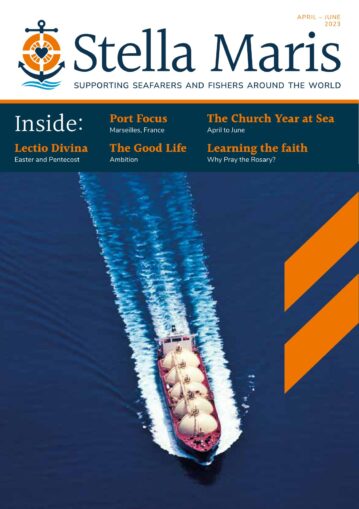
Posted on January 17, 2023 by Nathaniel Xavier - Uncategorized
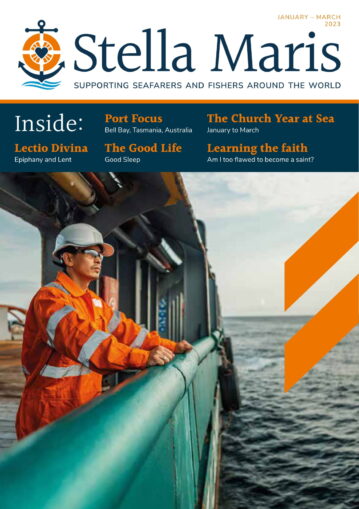
Posted on June 12, 2024 by Nathaniel Xavier - Uncategorized
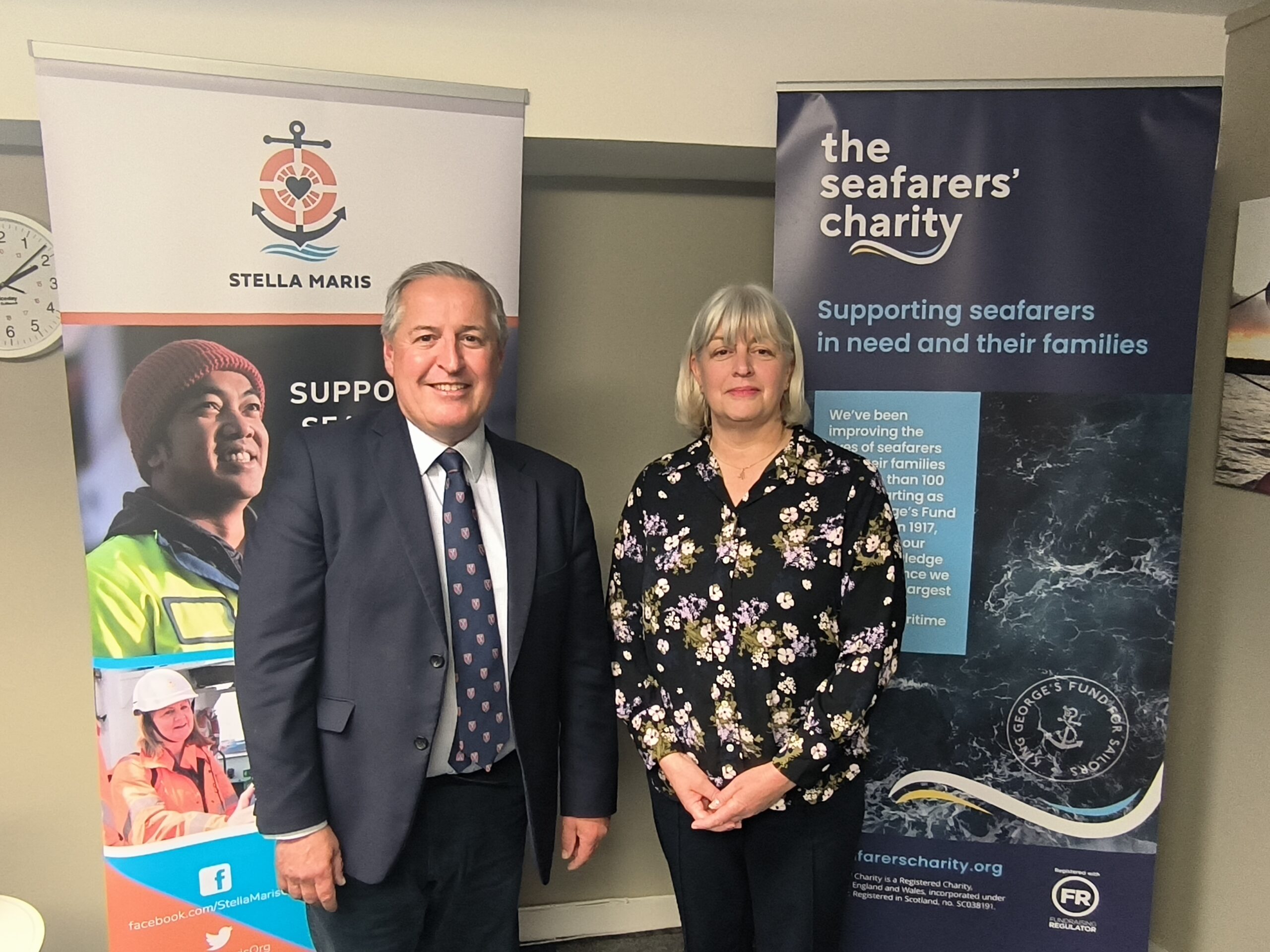
Grant funding from The Seafarers’ Charity enables Stella Maris to help achieve better and safer working lives at sea for seafarers and fishers
Hundreds of thousands of seafarers and fishers in the UK and other parts of the world have benefited from practical, pastoral and spiritual support provided by global ship visiting network Stella Maris over the past 10 years, thanks to over £1 million in grant funding provided by The Seafarers’ Charity over that period. The Seafarers’ Charity’s sustained grant funding over the last ten years has enabled Stella Maris to help ensure better and safer working lives at sea for seafarers and fishers.
Through its global network of over 200 port chaplains and more than 800 volunteers, Stella Maris is present in 353 ports in 57 countries, and collectively they undertake up to 70,000 ship visits globally each year. The Stella Maris teams provide fishers and seafarers with a listening ear, practical assistance, warm clothing, reading materials, transportation into towns, faith materials, and communication tools for contacting family and friends back home.
Unrestricted core funding provided by The Seafarers’ Charity over the last decade has enabled Stella Maris to continue carrying out vital daily ship visits, offering friendship, advice and timely support to seafarers and fishers faced with challenges whilst working at sea. Some of these challenges have included: abandonment, modern slavery, non-payment of wages, hospitalisation and deaths at sea or back home.
As a recent example, an Indian crew abandoned in Troon, Scotland had not received their wages for several months. The local Stella Maris chaplain, Deacon Joe O’Donnell, visited and provided them with free mobile phone SIM cards, food, clothing and transport into town. The uncertainty of having no income put them under huge mental strain, so Stella Maris offered them pastoral support and reassurance. Following this intervention, the crew were eventually paid and they were able to return home.
Grants from The Seafarers’ Charity have also supported the growth and development of Stella Maris’ activities in South Africa and Kenya during this period. In Kenya, this has enabled the growth of Stella Maris Kenya from one port chaplain and three volunteers to a team of one port chaplain, three staff members, and 30 volunteers, greatly increasing the number of ships visited and seafarers helped. The funding has also helped Stella Maris Kenya to support over 8,000 seafarers, fishers and their families through access to training, educational programmes and counselling support.
Tim Hill MBE, CEO at Stella Maris said: “None of our work is possible without that unrestricted core funding provided by The Seafarers’ Charity. Who would pay Deacon Joe’s salary, the fuel for his car, his personal protective equipment? Core funding isn’t glamorous, it’s not aligned to a specific project or deliverable, but here in the UK it is essential to enable my 22 chaplains and 80 volunteers to carry out their duties, so we are very grateful to The Seafarers’ Charity for their visionary and flexible funding approach.” He also added that “we are delighted to receive restricted funding grants that have supported our growth in Kenya and South Africa.”
Deborah Layde, Chief Executive at The Seafarers’ Charity added: “The Seafarers’ Charity is proud to support Stella Maris’ crucial role on the frontline delivering much needed welfare support to visiting seafarers. While their work in port is very visible, less visible, but just as essential, are the hidden core running costs of an organisation. Our funding of essential running costs means Stella Maris can focus on what they do best – helping seafarers. Thereby enabling them to pay their bills and deliver on their mission in the most effective and sustainable manner over the long-term. We encourage all funders and donors who want to support seafarers to consider contributing to the essential core costs of maritime welfare charities. Funding core costs may not be sexy or exciting and you can’t stick your logo on it, but it is a critical source of funding which enables a maritime charity such as Stella Maris to get on with helping seafarers to enjoy better working lives at sea.”

Posted on May 30, 2024 by Nathaniel Xavier - Uncategorized
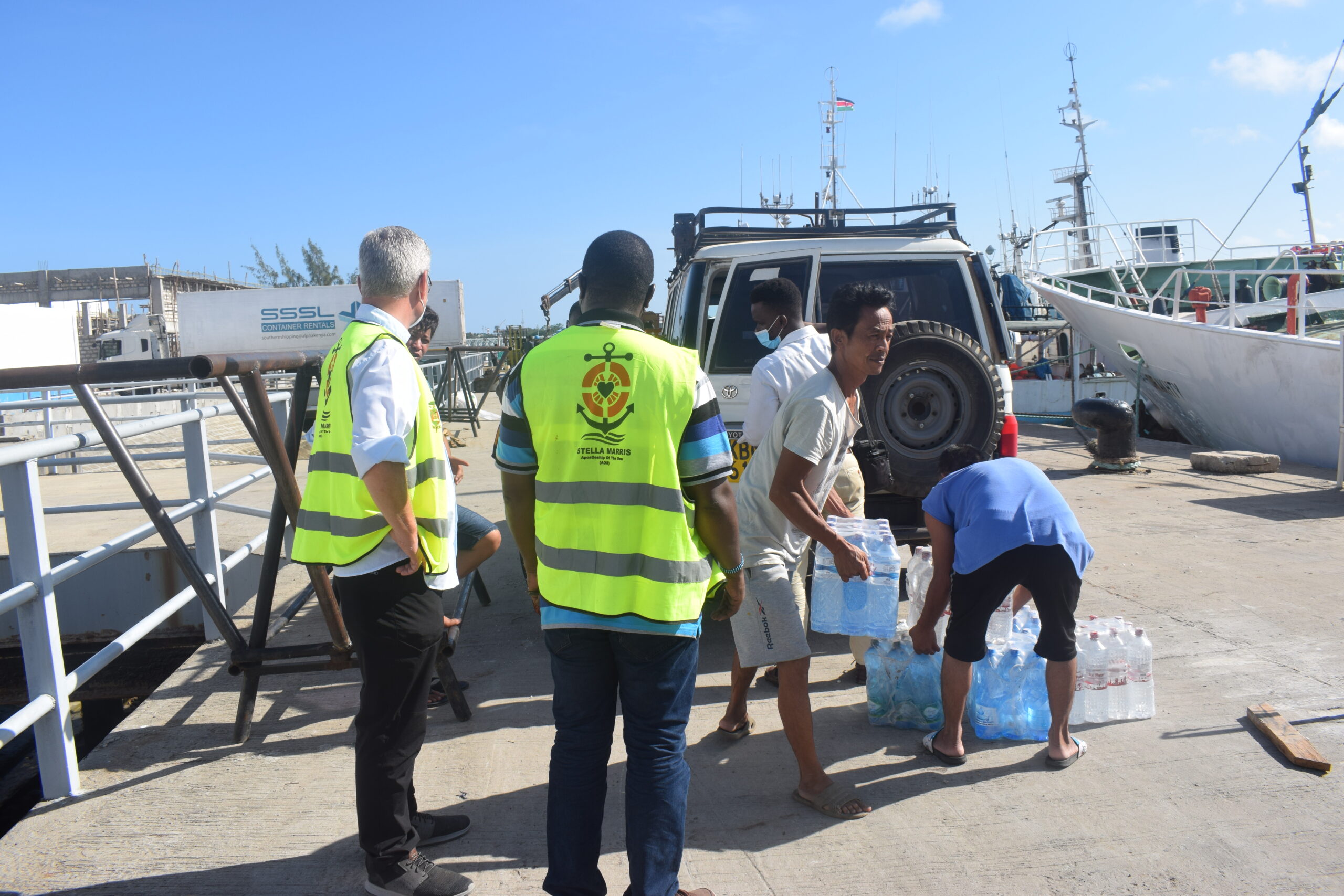
Cases of seafarers abandoned by shipowners without money, support, or the means to get home have reached alarming levels around the world, and global maritime charity Stella Maris is providing support to some of those affected.
The rise in the number of distressing cases in the sector has become a humanitarian crisis with many seafarers suffering mental issues as they struggle to find a way to resolve their parlous situation.
“This is a call to action for the entire maritime industry,” said Stella Maris CEO Tim Hill. “We must unite to enforce international laws, hold negligent companies accountable, and provide immediate assistance to abandoned crew.
“Ship abandonment has reached alarming levels, leaving many seafarers stranded without support, wages, or a way home. They deserve respect, dignity, and the assurance that they will never be forgotten.”
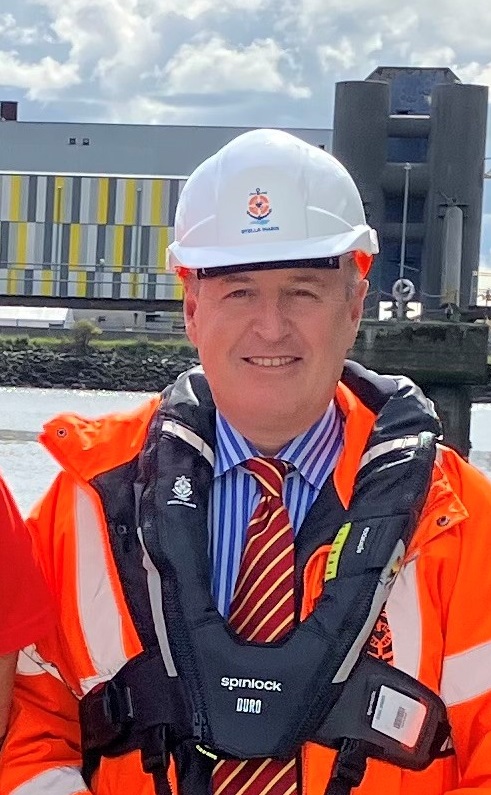
Data from the International Maritime Organization (IMO) highlights the huge rise in abandonment cases, which occur when shipowners withhold wages, repatriation, and even basic needs such as food, accommodation and medical care. In just 10 years, known cases have soared from little more than a dozen-a-year to 143 in 2023 with more than 100 cases already reported in 2024.
Deacon Joseph O’Donnell, Stella Maris Senior Area Port Chaplain for Scotland and Northern Ireland, said: “We ask those companies and organizations which benefit from the maritime industry, such as major retailers, to join us to put a stop to abandonment.”
A major issue in numerous labor supply countries is the role of formal recruitment agencies and “unlicensed agents,” who visit villages with promises of wages and conditions that often don’t materialize. “It will really help if we can cut out these unlicensed agents, better regulate the formal recruiters and properly introduce new skilled work visas,” said Deacon O’Donnell.
He highlighted a recent issue when an Indian crew, which had not received their wages for several months, was abandoned in Troon in south-west Scotland.
“We supplied groceries, clothing, and free mobile phone SIM cards so they could talk to their families back home,” he said. “We also must consider how much mental strain they are under with no money, no means of getting home and absolutely no idea what their future is.”
Stella Maris provided the Indian crew with pastoral support and reassurance. Following the charity’s intervention, the crew was eventually paid and repatriated back home.
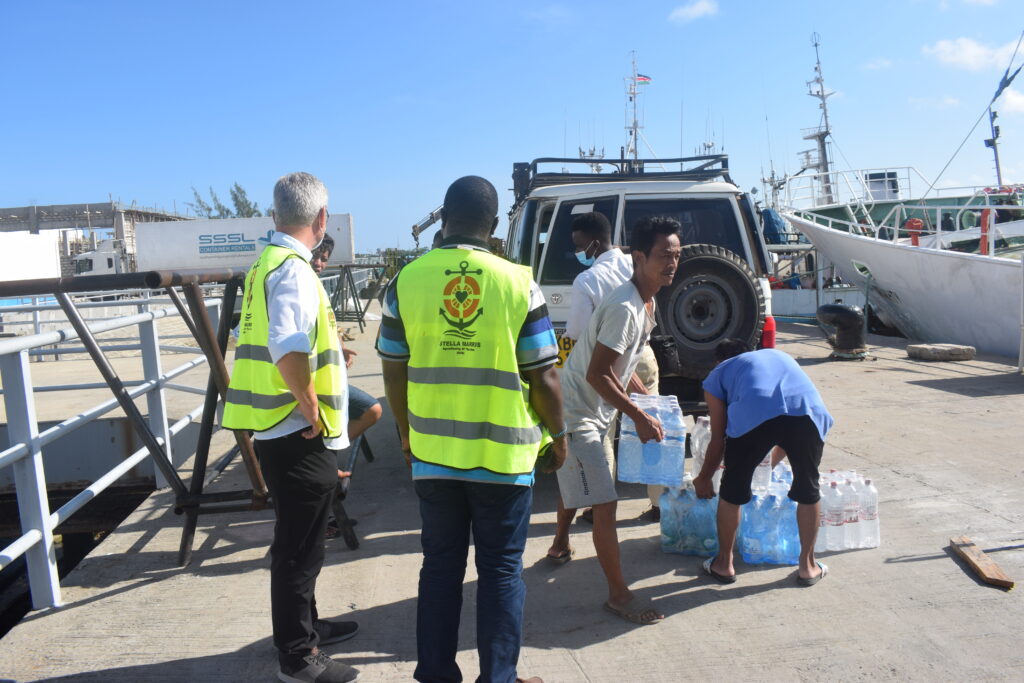
In recent years, Stella Maris has supported other abandoned crews in countries around the world such as Kenya and Taiwan. Its team in Taiwan supported the crew of eight Indonesians on a cargo ship abandoned in Kaohsiung port, who needed provisions and help to return home to their families. Its team in Kenya supported crew members on an abandoned fishing vessel in Mombasa port for over a year with food, water and Wi-Fi.
Margaret Masibo, the Stella Maris chaplain in Mombasa, Kenya, recalls: “Men were crying, others were shouting, some had withdrawn into silence. For several days, they’d had no food or fresh water. They were starving to death. Since the ship had been abandoned, not a single person had stepped on board to help – until I did. The men had no money and couldn’t disembark because they didn’t have papers to be in Kenya. It was a terrible, heart-breaking sight to see people abandoned so carelessly.”
“Awareness of these issues needs to be raised to higher government levels. It is a truly global issue,” added Deacon O’Donnell.
~ Story written by Polaris Media